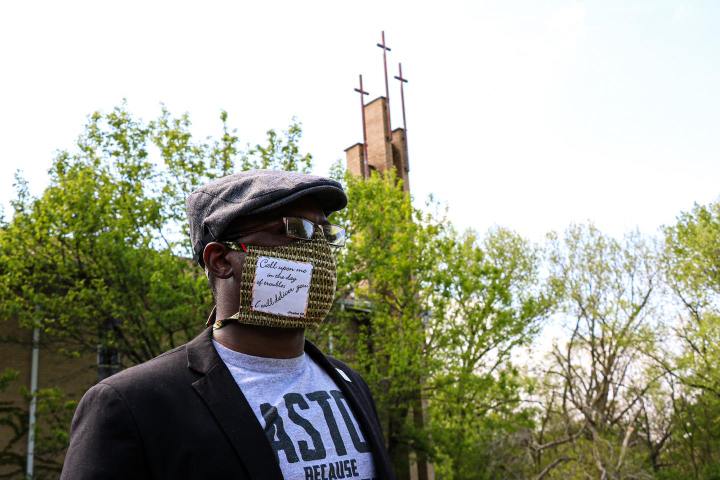
How COVID-19 is changing church

Like most industries, churches and other faith-based organizations have been forced to adapt to survive 2020.
“I really saw it as an opportunity,” said the Rev. Chris Butler, a pastor in the Chicago area who oversees two congregations that recently merged under the name Chicago Embassy Church Network and transitioned to virtual worship services in mid-March.
“The opportunity to do things virtually gave us the chance to really think through, what are the essential elements of gathering?” Butler told “Marketplace’s” Kimberly Adams. “Gathering is such a core part of who we are, but what about our efforts to serve our communities?”

According to projections from Feeding America, around 50 million people may experience food insecurity this year due to the pandemic. With Washington at odds for months over extending coronavirus relief aid, churches and other nonprofit organizations have helped fill gaps in the social safety net by providing food, clothing and other services to people in need.
Butler’s church does not maintain a food pantry, but he said they’ve focused this year on helping with food distribution, providing a safe space for children to do remote schooling, working with health care organizations to provide COVID-19 testing for church members and nonmembers alike, and sharing health information.
“Those are all important components of being ‘the church,’ and so I really saw it as an opportunity for us to learn more into those other aspects of who we are.”
Church membership among U.S. adults has declined sharply in recent decades. “When any institution is experiencing that kind of decline, what you would need to do is reevaluate some of the things that you do,” said Butler. “What we have had, in the midst of this pandemic, as a church is an opportunity to really step back and reevaluate.”
Butler cited the rapid expansion of virtual church services across the country this year as one example of positive change. “I have people who tune in to the stream every week who never have — and probably never will — walk into the door of this building where I’m sitting,” he said. “And so, there’s an opportunity to rethink church, and I hope we take it.”
Click the audio player above to hear the interview.
There’s a lot happening in the world. Through it all, Marketplace is here for you.
You rely on Marketplace to break down the world’s events and tell you how it affects you in a fact-based, approachable way. We rely on your financial support to keep making that possible.
Your donation today powers the independent journalism that you rely on. For just $5/month, you can help sustain Marketplace so we can keep reporting on the things that matter to you.












